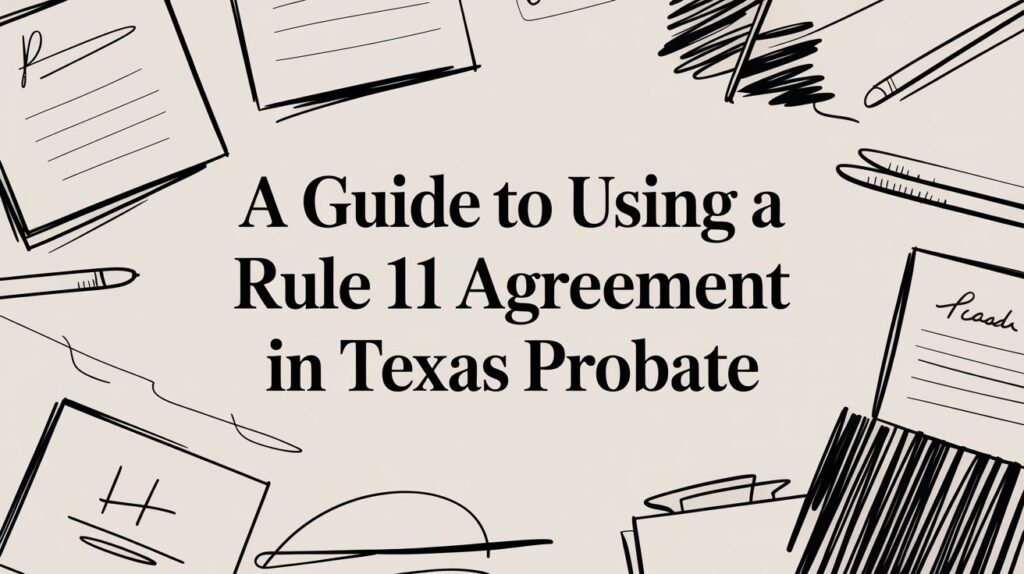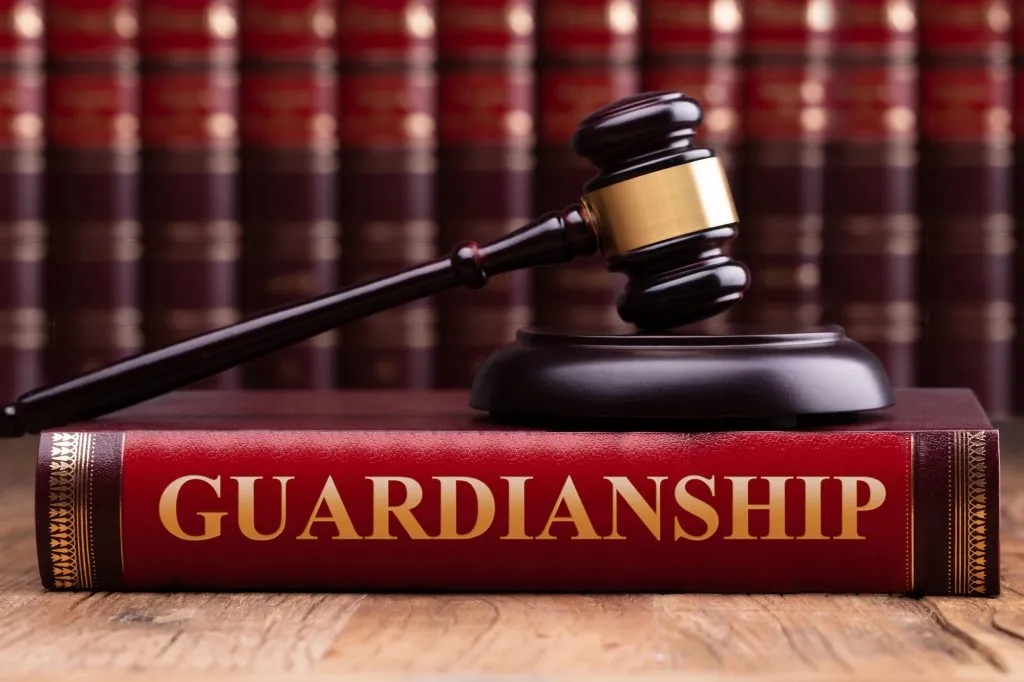Texas, with its vast landscapes and rich natural resources, has long been a land of opportunity. This is also true when it comes to mineral rights and real estate. But what happens when these valuable assets become part of a deceased person’s estate? Navigating the complex intersection of mineral rights, real estate, and probate law in Texas can be a daunting task. However, with the right knowledge, it becomes manageable. This guide will help you understand the nuances of dealing with mineral rights and real estate in Texas probate. It will also provide you with the tools to ensure a smooth and successful administration.
Understanding Mineral Rights in Texas
Before diving into the probate process, it’s essential to grasp the concept of mineral rights. In Texas, mineral rights are often severed from surface rights. This means the ownership of the minerals beneath the land can be separate from the ownership of the land itself. These rights can include oil, gas, coal, and other valuable minerals. Understanding whether the deceased owned these rights, and if they were severed from the surface rights, is the first step in navigating probate.
Types of Mineral Rights Ownership
- Fee Simple Ownership: The most common form of ownership, where the owner holds both the surface and mineral rights. In probate, these rights are treated as a unified asset.
- Severed Mineral Rights: In this scenario, mineral rights have been separated from surface rights. The mineral rights can be sold, leased, or passed down independently from the land itself. During probate, these rights must be identified and handled as distinct assets.
- Royalty Interests: The owner of royalty interests receives a percentage of the profits from mineral production without bearing the costs of extraction. This form of ownership often arises in probate cases, requiring careful attention to detail.

The Probate Process and Mineral Rights
When an estate includes mineral rights, the probate process becomes more complex. The executor or administrator must identify, appraise, and distribute these rights following the deceased’s will or state law. Here’s how the process generally unfolds:
1. Identifying Mineral Rights in the Estate
The first step in dealing with mineral rights during probate is identification. This can be challenging, as mineral rights are not always explicitly listed in the deceased’s assets. Key documents to review include:
- Deeds: Look for any mention of mineral rights, especially in the legal description of the property.
- Leases: If the deceased had leased their mineral rights, there will be lease agreements in place, often accompanied by royalty payment records.
- Royalty Statements: Regular payments from oil and gas companies can indicate ownership of mineral rights.
2. Valuing Mineral Rights
Valuing mineral rights is a crucial step in the probate process. The value of these rights can fluctuate based on factors such as current market conditions, the presence of active wells, and the potential for future exploration. Professional appraisers with expertise in mineral rights are often required to provide an accurate valuation, which will be necessary for estate tax purposes and the equitable distribution of assets.
3. Transferring Mineral Rights
Once identified and valued, the mineral rights must be transferred to the beneficiaries. This transfer can be complex, particularly if the rights are severed from the surface rights or if they are tied to active leases. The process typically involves:
- Filing the appropriate documentation with the county where the mineral rights are located.
- Notifying the oil and gas companies involved, so they can update their records and direct royalty payments to the correct beneficiaries.
- Dealing with fractional interests: If the mineral rights are divided among multiple heirs, fractional interests can complicate matters, especially when it comes to managing and leasing these rights in the future.
Real Estate in Texas Probate
Real estate often forms the most significant part of an estate’s value and can include anything from family homes to vast ranches and commercial properties. In Texas, handling real estate in probate involves a few specific steps and considerations.
1. Title Examination
Before any real estate can be distributed or sold, the title must be examined to ensure it is free of encumbrances and accurately reflects ownership. This examination may reveal issues such as:

- Liens or unpaid taxes: These must be resolved before the property can be transferred.
- Title defects: These may require legal action to clear.
- Undivided interests: If the property was co-owned, the executor must determine how these interests will be handled under the will or state law.
2. Appraisal of Real Estate
Similar to mineral rights, real estate must be appraised to determine its value for estate tax purposes and distribution. Texas law requires that the appraisal be conducted by a qualified professional who understands the local real estate market.
3. Managing and Maintaining Property During Probate
If the probate process is prolonged, the executor is responsible for maintaining the property, including paying property taxes, utilities, and insurance. For income-producing properties, such as rental homes or commercial buildings, the executor must also manage leases, collect rent, and handle any necessary repairs or renovations.
4. Distributing Real Estate
Once all debts, taxes, and expenses are paid, the executor can distribute the real estate according to the will or, if there is no will, in accordance with Texas intestacy laws. This may involve:
- Transferring ownership to heirs: The executor must file the necessary deeds and ensure the proper recording of ownership changes.
- Selling the property: If the will directs the property to be sold, or if the heirs agree to a sale, the executor will handle the sale and distribute the proceeds.
Dealing with Complexities: Mineral Rights and Real Estate Combined
In many cases, an estate will include both real estate and mineral rights, often tied together in a single piece of property. This scenario adds layers of complexity to the probate process.
Co-ownership and Fractional Interests
In Texas, it’s common for families to hold mineral rights and real estate in fractional interests, passed down through generations. When these interests are divided among multiple heirs, the executor faces the challenge of managing and distributing these fractional shares. This can involve complex negotiations among heirs, especially when some wish to sell while others prefer to hold on to their shares.
Leases and Surface Use Agreements
When mineral rights are severed from surface rights, leases and surface use agreements often come into play. The executor must review these agreements carefully to understand the obligations and rights that pass to the heirs. For instance, a surface use agreement may limit how the surface of the land can be used, affecting the property’s value and potential sale.
Common Challenges and How to Overcome Them
Navigating the probate process with mineral rights and real estate in Texas is challenging. Here are some common issues that arise and strategies to address them:
1. Unclear Ownership
Over time, records of ownership can become unclear, especially with fractional interests passed down through generations. To overcome this, the executor should:
- Conduct a thorough title search: This helps to clarify ownership and identify any potential disputes.
- Hire a landman: A professional who specializes in researching land and mineral rights ownership can be invaluable in these situations.
2. Family Disputes
When multiple heirs are involved, especially in the case of valuable assets like mineral rights and real estate, disputes can arise. To navigate these conflicts:
- Communication is key: Keep all heirs informed throughout the process, and seek consensus when possible.
- Mediation: If disputes become heated, a neutral third-party mediator can help resolve issues without resorting to litigation.
3. Managing Complex Assets
The management of mineral rights and real estate, particularly when they are income-producing, can be challenging during probate. To ensure smooth management:
- Hire professionals: A property manager for real estate and a mineral rights consultant can help manage these assets during the probate process.
- Keep detailed records: Document all transactions, income, and expenses related to these assets to avoid disputes and ensure transparency.
Legal Assistance: When to Seek Help

Given the complexities involved in probate cases with mineral rights and real estate in Texas, it’s often advisable to seek legal assistance. A Texas probate attorney with experience in these areas can:
- Help you understand your responsibilities: Especially if you are the executor, an attorney can guide you through the process and help you avoid potential pitfalls.
- Assist with complex legal issues: Such as title disputes, unclear ownership, and the division of fractional interests.
- Represent the estate in court: If probate litigation arises, having legal representation is crucial to protecting the estate’s assets and ensuring a fair outcome.
Conclusion: Successfully Navigating the Probate Process
Navigating mineral rights and real estate in Texas probate requires a clear understanding of both probate law and the specific nature of these assets. By following the steps outlined in this guide, from identifying and valuing assets to managing and distributing them, you can fulfill your duties as an executor or heir with confidence. While the process can be complex, especially with the added layer of mineral rights, careful planning, professional assistance, and open communication with all parties involved will help ensure a smooth and successful probate process.
In the end, navigating the intricacies of mineral rights and real estate in Texas probate is not just about following the law; it’s about honoring the wishes of the deceased and ensuring their legacy is passed on to the next generation with integrity and care. Whether you’re dealing with a family ranch, a valuable mineral lease, or a modest home, the steps you take today will have lasting impacts on the future.








